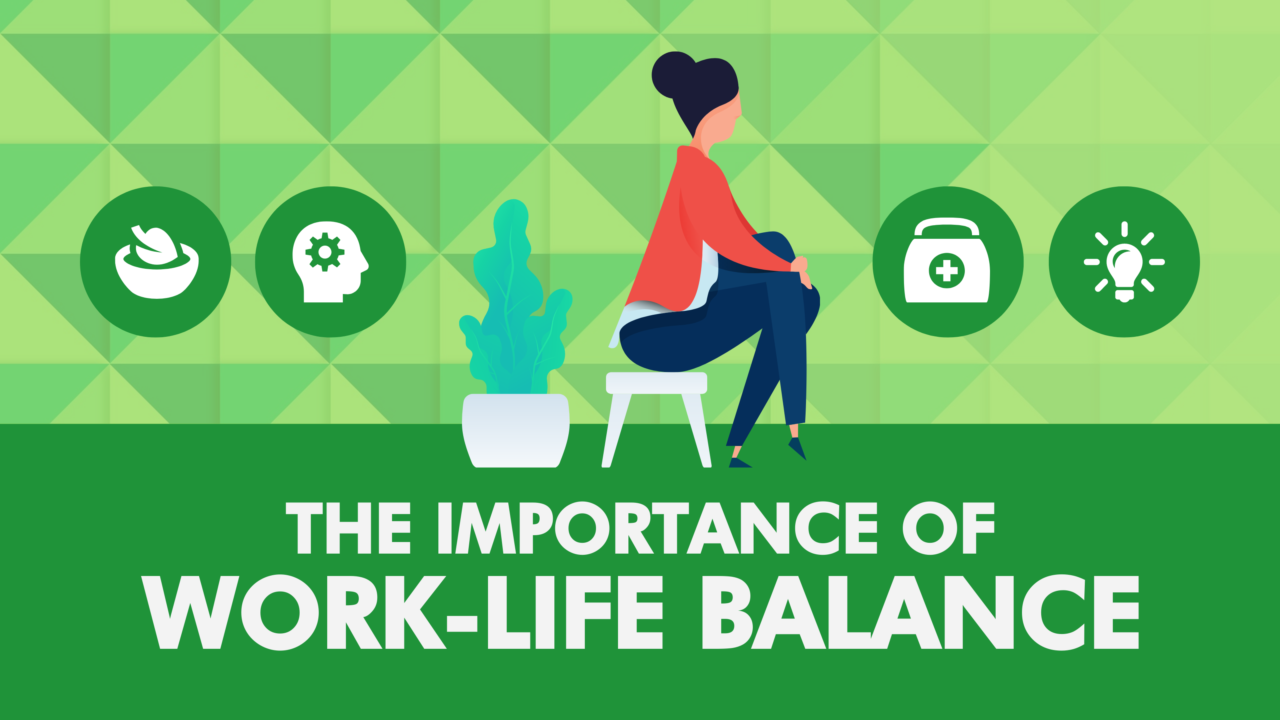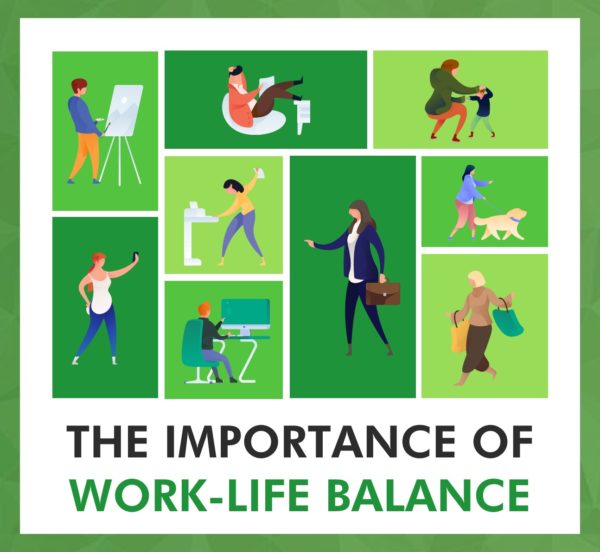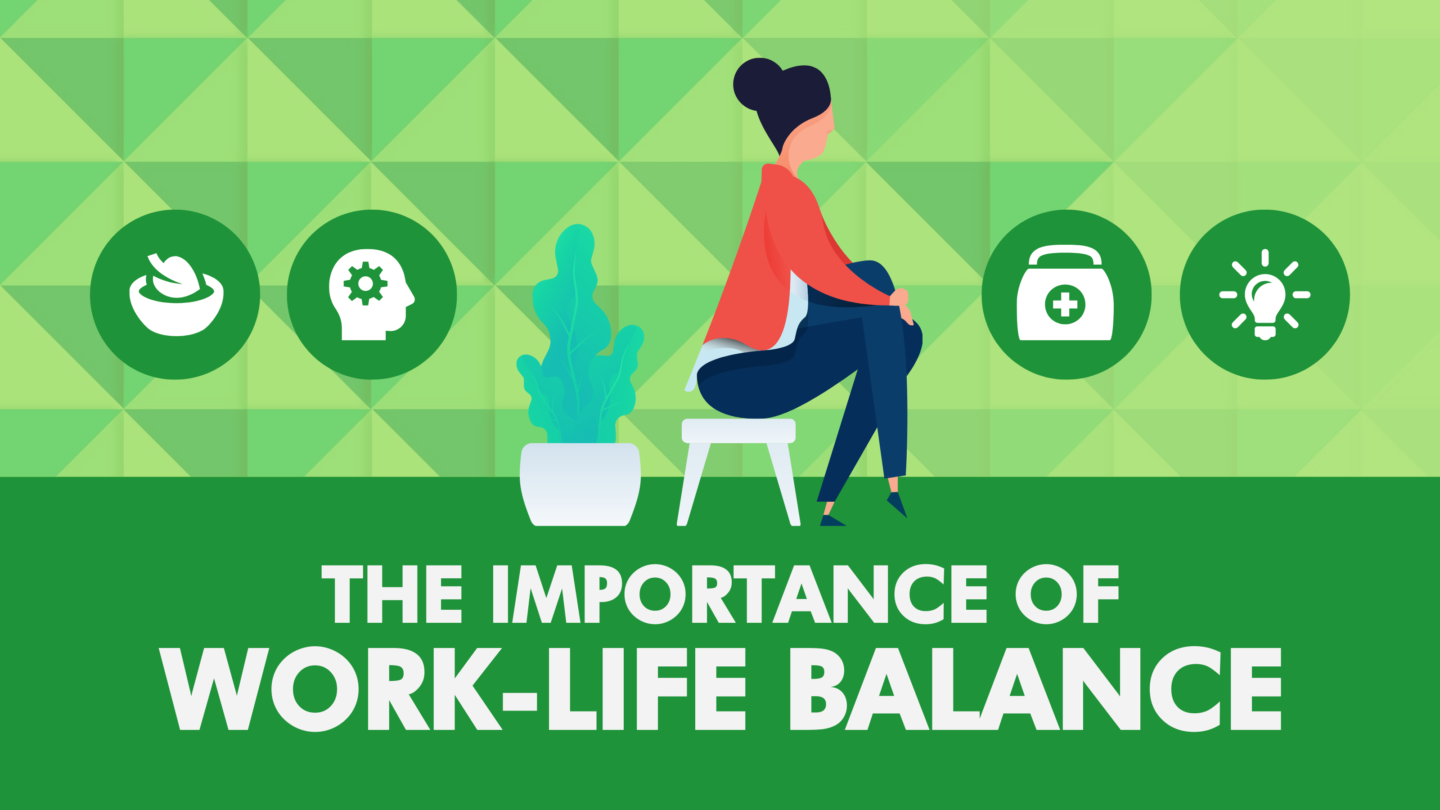
The Importance of Work-Life Balance
If you want your employees to work at your company for a long time, and be happy while doing so, then the importance of work-life balance cannot be overstated.
Work-life balance is the act of separating one’s work life from their personal life in such a way that neither encroaches on the other. This has many important benefits, so let’s take a look at some:
You can take our Work-Life Balance White Paper for free!

Please feel free to circulate within your organization!
Work-Life Balance
Send download link to:
What is the importance of work-life balance?
Work-life balance helps maintain mental health
Having a healthy work-life balance means that employees will be happier when they come to work. This, in turn, helps reduce stress and the chances of burnout, two common health issues in the workplace.
- Chronic stress occurs when employees are continuously stressed. It can lead to mental health issues such as depression, anxiety, and insomnia, as well as physical health issues including chronic aches and pains, heart troubles, and hypertension.
- Burnout happens when an employee suffers too much stress over a long period of time. Burnout can cause anything from mood swings and irritability, to fatigue and a decrease in productivity. It can lead to employees seeking health care or taking sick days, which in turn can become costly for a company.
It also helps with physical health
If employees are being too overworked, they are much more likely to be plagued with physical ailments. This is especially true if they aren’t taking appropriate breaks throughout the day. Some examples include:
- Chronic pain/carpal tunnel syndrome: overworking, especially if the office environment isn’t ergonomic, can lead to soreness or worse.
- Higher risk of heart disease and high blood pressure: being sedentary is a big contributor to these conditions.
It can make you more well-rounded
There’s a reason that CVs have a space for hobbies, and interviewers often ask about what an employee likes to do outside of work. Being able to share stories, knowledge, and experiences will allow employees to connect on a social level, creating a tighter-knit team.
It increases productivity
A company needs its employees to be productive. That’s where the importance of work-life balance comes into play – if an employee’s work-life balance is steady, they will be much happier at work. This leads to greater productivity. Staying late every night and working overtime may seem like it would boost productivity, but realistically the work is most likely of a lesser quality.

How do employers promote a healthy work-life balance?
Now that the importance of work-life balance has been established, we’ll discuss how employers can promote it.
Work-life balance is different for everyone. One way it varies is generational:
- Baby Boomers typically don’t put as much stock into work-life balance, as it wasn’t a main priority or concern compared to obtaining stable employment.
- Gen Xers (children of Baby Boomers) put more emphasis on the importance of work-life balance after growing up seeing the effect long working hours had on the relationship of a family. They tend to view things like telecommuting, extended maternity/paternity leaves, and adequate vacation time as prerequisites to a job.
- Millennials: there are many stereotypes for Millennials. Many employers overcompensate when trying to figure out what will attract them, trying tactics like having game rooms, or beanbag chairs, etc. However, Millennials seem to be interested in careers that will support their life outside of work. Pay, career-trajectory, and the location of the job are still huge factors for them, just as they are for Baby Boomers and Gen Xers.
Since everyone is unique, however, belonging to a certain generation doesn’t automatically define one’s opinions on the importance of work-life balance. Employers should be as flexible as they can be in order to accommodate as many people as possible – after all, work-life balance isn’t just about the number of hours worked in the office. It’s also about creating a healthy, happy work environment in order to improve the overall work experience.
So what does that entail?
A flexible work environment
A flexible work environment decreases stress for the employees, boosts levels of job satisfaction, and encourages employees to partake in healthy habits, such as exercise and eating healthy foods. Some aspects of a flexible work environment include:
- Flexible work hours: let employees work when it’s best for them (within reason, of course) instead of a hard 9-5.
- Ability to work from home: if it’s a job or task that can be done from home, schedule times where the employee can do so.
- Personal time off: allow employees to take personal time when they deem it necessary. Of course, this would need to be monitored so it isn’t abused and it doesn’t affect the productivity of the workplace, but even knowing they are able to take it if needed can be a big positive.
- Have priorities straight: if you want to attract good employees, and keep them, you can demonstrate your acknowledgement of the importance of work-life balance by offering the following:
- Competitive compensation: one of the biggest stressors for employees is money.
- Comfortable office conditions: if the employee is happy at work, they will be more productive.
- Opportunities for professional growth and social connections: if employees are able to grow in their job, and meet new people that have similar interests, they won’t feel stuck and will continue to be happy at work.
It is important to note that employers must be flexible and willing to change an office culture if it isn’t working for the employees. How people define the importance of work-life balance will constantly be changing. Employers will have to constantly be on their toes in order to find the proper balance to keep productivity up, but also keep their employees happy.
How can an employee ensure they are exercising a good work-life balance?
Here are some ways employees can avoid stress and burnout, and keep a good work-life balance:
- Take advantage of their PTO
- Take breaks at work
- Get a little bit of exercise / mobility each day
- Take holidays
- Spend time with friends and family
- Leave work at work
- Healthy eating and sleep routines
- Pursuing hobbies
Noting the importance of work-life balance
It’s important to make it clear to employees that your organization understands the importance of work-life balance. Encourage employees to follow work-life balance best practices, and offer support and guidance if they need it. At the end of the day, an optimal work-life balance for your employees and you will be beneficial to your organization as a whole.
Take the White Paper to go!
Work-Life Balance
Send download link to:




